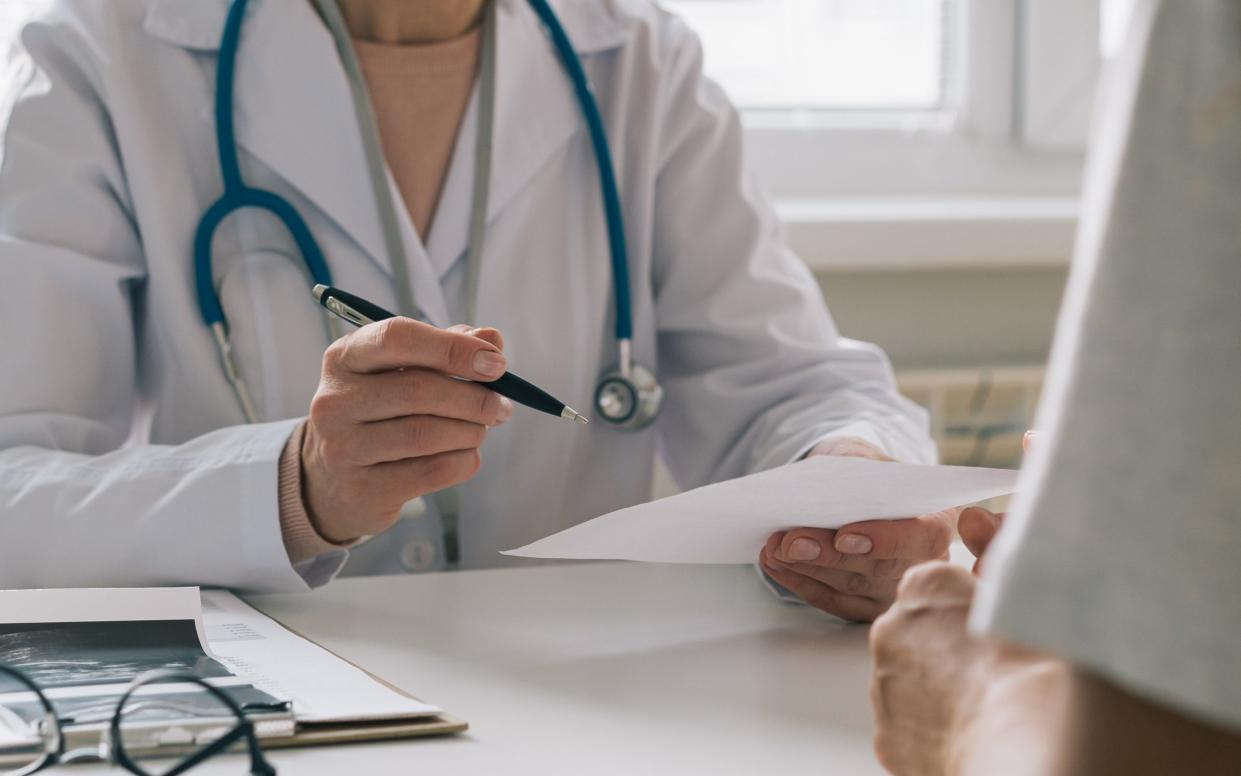GP shortage fuelled by recruitment drive for pharmacists in surgeries

- Oops!Something went wrong.Please try again later.
A GP shortage is being worsened by a recruitment drive for pharmacists in doctors’ surgeries.
Britain is facing an “exodus” of GPs because practices have stopped recruiting them, leaders have warned.
A survey of GP partners by the magazine Pulse has revealed that the number of vacancies for family doctors has halved within a year as they turn to pharmacists, physiotherapists and physician associates.
Doctors have said they are being replaced on the cheap.
The survey of 612 partners revealed that nine in 10 GP practices have increased the use of healthcare staff other than doctors.
More than three in five said they had employed more pharmacists, while a third said they were using more paramedics.
There were 619 GP vacancies in November 2022, but just 347 this month, across the whole country.
Doctors’ leaders have insisted there are far too few GPs in post, leading to long waits for patients and reduced face-to-face appointments compared with before the pandemic.
Third worst place in the world
A recent international study revealed that Britain was the third worst place in the world for GP waiting times against two metrics: the proportion seen within 24 hours and the proportion waiting longer than a week.
Think tanks have calculated that the GP shortage could be as high as 6,000 and the NHS workforce plan aims to increase training places by 5,000 within five years.
But doctors who are already qualified say they cannot get salaried or locum work because surgeries are choosing to deploy health workers they don’t have to pay for.
The NHS initiative, called the Additional Roles Reimbursement Scheme (ARRS), sees GP partners, who run their own practice, get the salaries of non-doctor roles reimbursed.
The funding has risen eightfold in four years to £891 million.
Dr Malinga Ratwatte, chair of the BMA’s GP trainees committee, said GPs “are finding it more and more difficult to find work”.
“With the increase in the ARRS, the amount of work available as well as salaried jobs has actually decreased,” he said. “‘Our fear is that because those opportunities are no longer available, it’s probably going to drive an exodus of GPs out of the profession and out of the country potentially.
He added: “We are travelling in the wrong direction.”
Care and services the patients really need
The number of full-time equivalent GPs has fallen by around 250 over the past 12 months.
Professor Kamila Hawthorne, chair of the RCGP, said: “These figures are surprising as what we hear from many members is that they are finding it very difficult to recruit GPs, even after several months. What I hope isn’t the case is that practices are giving up and making do without enough GPs to deliver the care and services their patient population really needs.
“We continue to desperately need more GPs, but figures show that while workload in general practice is increasing, numbers of fully qualified, full-time equivalent GPs continue to fall.”
An NHS spokesman said: “General practice teams are seeing and treating record numbers of people, which is why it’s been so welcome that GP training places have increased by 50 per cent since 2014, helping ensure that the NHS hits GP recruitment targets and practices are giving patients more choice in who they receive care from as more than 34,000 additional staff have been hired since 2019.”
A Department of Health spokesman said: “Our £1.2 billion Primary Care Recovery Plan set out how we will address the challenges facing the sector by recruiting more staff, including those providing direct patient care, using the latest technology, freeing up GP time by funding pharmacists to do more and reducing workload by cutting bureaucracy.
“Staff recruited via the ARRS help reduce the workload of doctors in general practice and assist patients directly, allowing GPs to focus on the work only they can do.”

